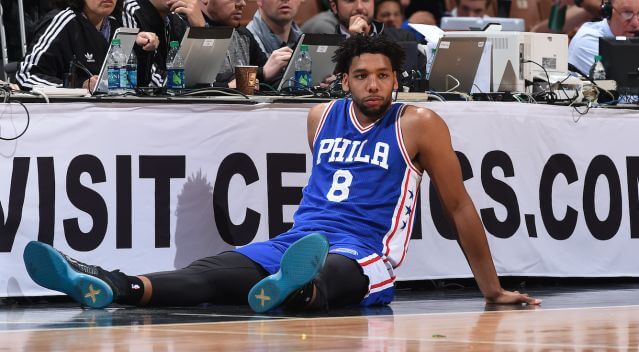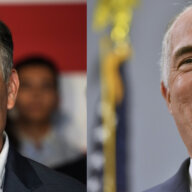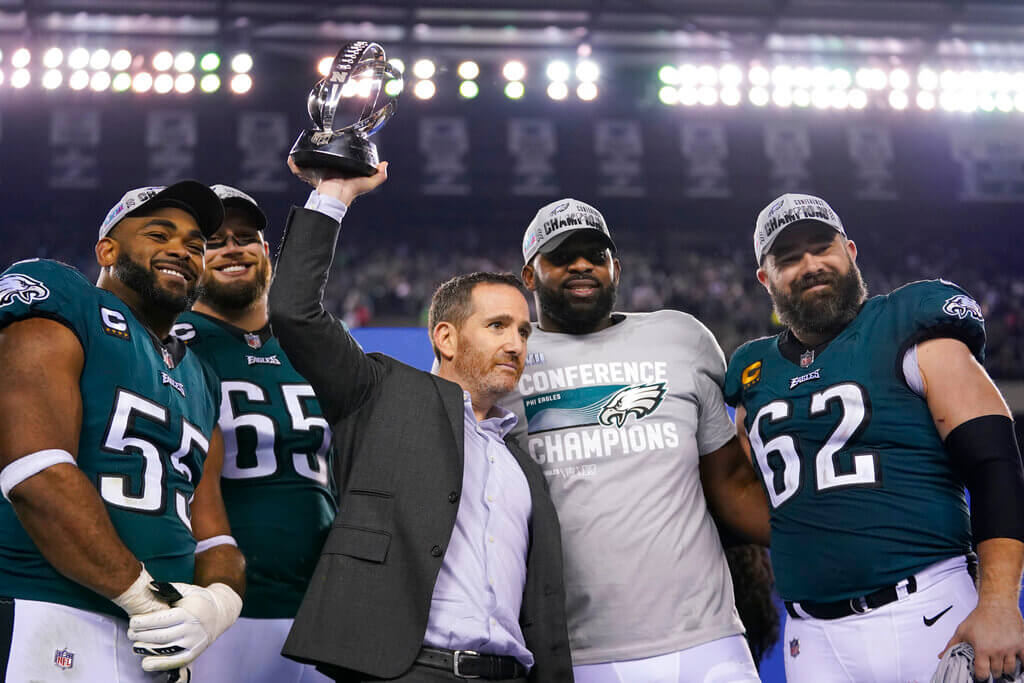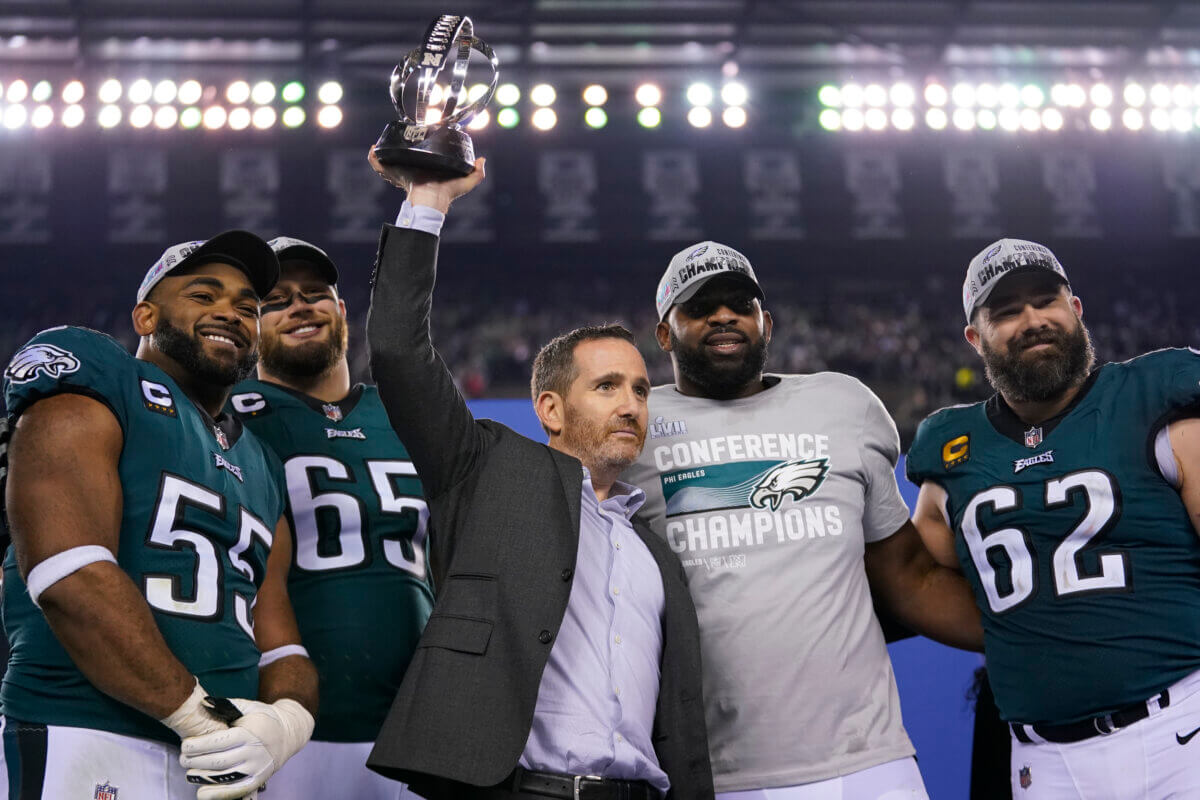When we look at our best and brightest athletes, we think their diets must include fatty, protein-filled meats. But that’s not always the case.
Case in point: Jahlil Okafor, 21, and a center for the Sixers, is following athletes like Tom Brady, Venus Williams and Green Bay QB Aaron Rodgers in learning that plant-based diets are just as capable of building muscle.
In other words, you don’t need meat to compete.
“I took initiative this offseason to try and diet and lose weight,” Okafor said Monday at a Sixers media event, regarding his new vegan diet.
Okafor, boasting a lean, 253-pound frame, is down 20 pounds from last season. “It wasn’t easy. The first drastic change I made was my diet. I became a vegan. I did it gradually. First I got rid of dairy and meat and my favorites, like cheese,” he said.
Okafor hasn’t had an easy go of things since being drafted third overall by the Sixers three years ago. Injuries, trade rumors, speeding tickets and benchings are a lot for a young man to handle, particularly in the spotlight of being a pro athlete in Philadelphia, but the 6-foot-11 center has taken it all in stride.
But going vegan to better himself is still an unusual step in sports circles.
Several high-profile athletes are vegan, including UFC champ Nate Diaz, Formula One racer Lewis Hamilton, former Tigers slugger Prince Fielder and former Phillies reliever Pat Neshek – but it is extremely uncommon.
“There’s sort of an old-fashioned idea that men need to eat meat,” said PETA spokesman Ben Williamson. “That’s been disproved by science lately.”
In Okafor’s case, it wasn’t about a moral calling – it was about health, fitness and pain management.
“The reason for doing that was to become healthy,” Okafor, a former NCAA national champion with Duke, said. “I read this offseason that dairy was an inflammatory and my knee was swelling up, and I am a full on vegan now. I feel great and I am going to stick with it.”
Williamson said that whether people go vegan for moral or health reasons, the diet has restorative effects on the human metabolism that are particularly beneficial for athletes.
“Athletes more and more are finding when their body is not putting all of its energy into digesting heavy meat and dairy, it’s able to expend energy on recovery and repairing muscle cells,” he explained.
It hasn’t been easy for Okafor, who is surrounded not only by other guys in their early 20s who have digestive systems that can handle anything, but also because he’s grown up eating freely and nearly consequence-free – as his near-7-foot frame allows.
“There are so many things I would eat on a day-to-day basis,” Okafor said. “The thing I miss the most are eggs – I love that with cheese. I miss the sausage McGriddles from McDonalds, a bunch of BS, man, but I cut it out and am glad I did it.”
The Sixers during their rebuild, which they’re deeming “The Process,” have taken pride in using science and innovation toward their approach to winning. Okafor’s dietary approach could be more and more common in 21st century athletics.
“Plant-based meals and vegan meals provide athletes with all the protein and complex carbohydrate and nutrients they need to get stronger faster,” Williamson said. “More and more, we’re going to start seeing these no-meat athletes dominating their sports and proving you really don’t need meat.”
Is going vegan really better?
Vegans will tell you that the diet is healthier and doesn’t cause harm to animals.
But some scientists say it also can actually make you fitter, and in the sports world, more competitive.
A recent University of Arizona study found “that vegetarian endurance athletes’ cardiorespiratory fitness was greater than that for their omnivorous counterparts. … These data suggest that vegetarian diets do not compromise performance outcomes and may facilitate aerobic capacity in athletes.”




























